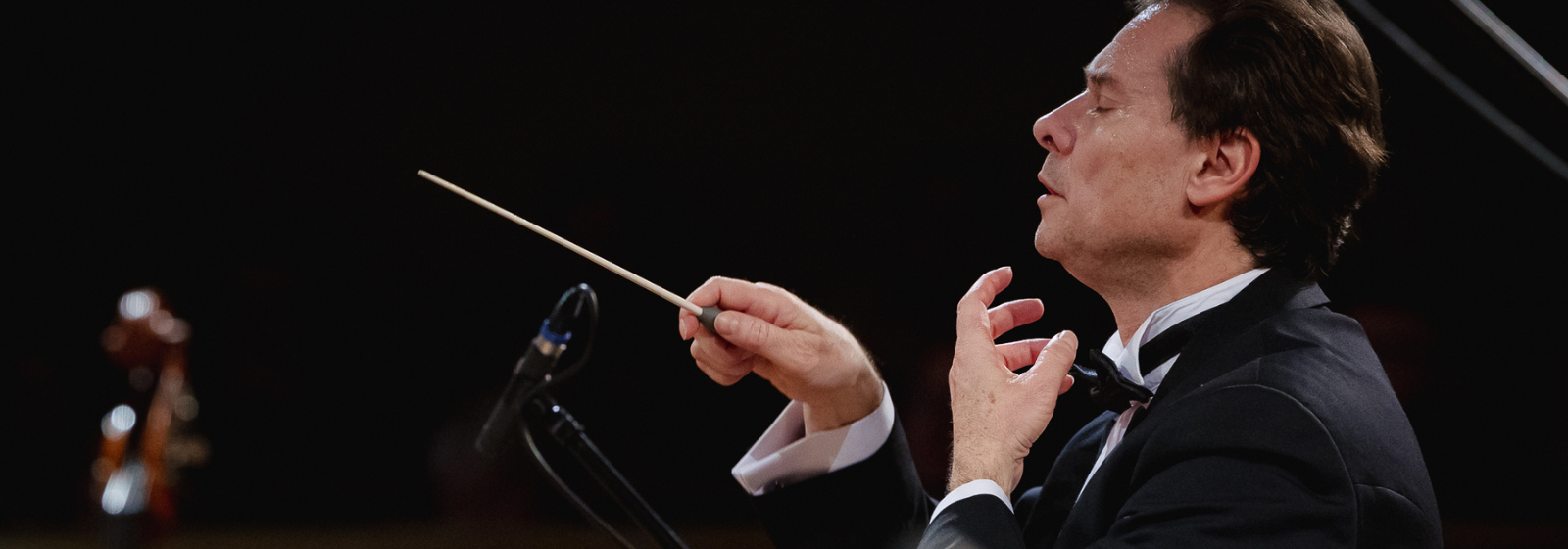
Budapest
THE SPINNING ROOM – singspiel in one act
Pászti/4
ZOLTÁN KODÁLY: The Spinning Room
Housewife Atala Schöck
Suitor Zsolt Haja
Neighbour Andrea Lehőcz
Young girl Blanka Bede
Young man Botond Ódor
Rich man Jenő Dékán
Hungarian National Choir (choirmaster: Csaba Somos)
Hungarian National Philharmonic Orchestra
Conductor: Csaba Somos
When the name Zoltán Kodály comes up in conjunction with the genre of singspiel, what first comes to everyone’s mind is Háry János: his tale of the boastful veteran is so popular that many forget about the composer’s other work for the musical stage, The Spinning Room, which the audience will now get to hear at this concert by the Hungarian National Choir and the Hungarian National Philharmonic Orchestra, with the participation of top soloists and conducted by the choir’s director, Csaba Somos.
Háry János was first presented at the Hungarian State Opera in 1926, while The Spinning Room had its world premiere in 1932 – making it Kodály’s second work for the musical stage. Although the 70-minute one-act piece is classified as a singspiel just as Háry is, the difference between the two works lies in the fact that Háry follows a main story, a narrative poem by the reform-era poet János Garay entitled The Veteran, while following the plot of The Spinning Room, the audience correctly feels that the framing story – the escape of the suitor, followed by his capture, the consolation of the bride, the exposure of the rich lad, and finally the release of the innocent suitor – is a loosely structured sequence of events whose main function is to serve as a framework for a selection of folk songs – 23 of them in all – to be performed in costume and with a set and acting. This is because The Spinning Room is nothing other than the dramatic apotheosis of the Hungarian folk song: whereas in Háry all this takes place anecdotally in a self-deprecating and humorous form, here it is connected to the depiction of folk life, and, despite the cheerful or even comical episodes (such as A Big-Nosed Flea), has a fundamentally serious tone. The soloists in the production – Atala Schöck, Zsolt Haja, Andrea Lehőcz, Blanka Bede, Botond Ódor and Jenő Dékán – are leading Hungarian singers and expert connoisseurs of the style.
Dear Audience,
Emerging from under the shadow of the coronavirus epidemic, this season has finally provided us with a calmer and more predictable environment, allowing the large-scale concerts by the Hungarian National Choir to successfully take place at last. Incorporating your feedback, we wish to continue our efforts to present our ensemble in the most diverse possible fashion next season as well.
The first of this series of four concerts will feature Liszt’s most significant work: one that exceeds the boundaries of a standard oratorio. The Christus oratorio is a gigantic work covering the entire liturgical year, with a symphonic orchestra, the soloists and, of course, the choir each playing a huge role. I myself have been preparing to conduct this masterpiece for decades, so it is a great honour to be able to take the stage in the company of such wonderful ensembles as the Hungarian National Choir and the Szent István Philharmonic. Incidentally, this performance is taking place in the Pesti Vigadó, the same venue where the work received its Hungarian première, almost 150 years to the date after that event.
The second concert in our season ticket series promises to be a true musical and acoustic experience, as on this evening we will be singing Rachmaninov’s a cappella cycle Vespers. Since the work calls for unusual voice types (such as contrabasses), we are glad to be able to employ the special abilities of our ensemble.
Conducting this concert will be the Netherlands Radio Choir’s talented young choirmaster, Benjamin Goodson.
After several years of planning, it is a great pleasure for us to finally be able to present Dvořák’s rarely heard Czech-language cantata The Spectre’s Bride. The singers performing the fairy-tale ballad under the baton of Tomáš Brauner are all excellent artists from the Czech Republic.
The final concert of the Pászti season ticket series concludes our musical journey with a programme of Hungarian music. This evening affords us the opportunity to hear Zoltán Kodály’s singspiel The Spinning Room in concert version. Partnering with the Hungarian National Choir yet again will be the Hungarian National Philharmonic Orchestra, which is celebrating its centenary.
On behalf of my fellow artists and myself, I warmly welcome you to the Pászti subscription concerts for the 2023/24 season!
Csaba Somos
Choirmaster of the Hungarian National Choir

